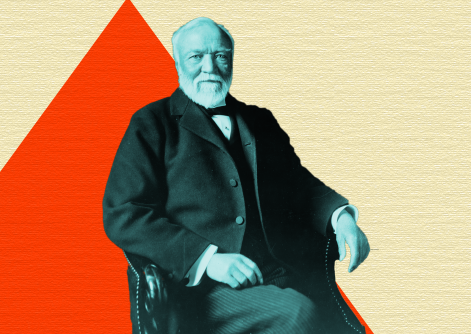Gates admitted to the Journal’s Jason Riley that his foundation’s first big push in education philanthropy, a $100 million investment in 2004 to encourage smaller high schools, had limited results. Gates believes his millions led to less acting up in class, improved attendance, and more interaction with adults.
“But the overall impact of the intervention, particularly the measure we care most about—whether you go to college—it didn’t move the needle much,” he says. “Maybe 10% more kids, but it wasn’t dramatic. . . . We didn’t see a path to having a big impact, so we did a mea culpa on that.”
Riley draws out of Gates several ideas he has for improving his education giving:
1. change strategy from school-level investment to leveraging private dollars in ways that affect public education funding
2. fund “R&D” in hopes the new knowledge will bring innovation
3. in this vein, see if ways can be found to measure teacher effectiveness, because teachers are the most important factor in students’ learning
4. try to obtain buy-in from teachers
5. doubt that teachers’ unions are as powerful a roadblock to reform as some critics claim
6. support a uniform national curriculum
7. support charter schools but avoid support for school vouchers “because the negativity about them is very, very high”
All these ideas are debatable, and Gates predictably drew a range of responses. Steve Schuck, a Colorado Springs businessman and philanthropist, applauded the way Gates has “transformed the world with his business acumen” but found it “very telling that with all his abilities, intelligence, determination and resources, he has by his own admission barely moved the education needle.”
The difference, Schuck argued, is that when Gates was selling high-tech products in the marketplace, consumers could drop IBM products when they found his products better. But parents, the consumers of education, lack such choices. “Mr. Gates has slain dragons before,” exhorted Schuck, “and, if he will embrace vouchers, he will do so again.”
Another letter writer, Ze’ev Wurman, objected to Gates’s support of national standards:
Mr. Gates says he is a strong supporter of a uniform core curriculum across the land, and justifies it with “It’s ludicrous to think that multiplication in Alabama and multiplication in New York are really different.” Yet this is a false analogy. If the single best answer to this question is as obvious as Mr. Gates implies, we would not have a dozen nations lead America by a wide margin on international examinations, yet each having a widely different curriculum. The list of countries that beat us includes Canada and Australia, where each of their provinces has a different set of standards.
My favorite critique came from Andrew Coulson of the Cato Institute, who riffed on Gates’s complaint that education has far less R&D spending than sectors like pharmaceuticals or information technology. Gates added, “That’s partly because of the problem of who would do it. Who thinks of it as their business?”
Coulson countered that the problem isn’t a lack of research attention: “The Education Resources Information Center, a database of education studies dating back to 1966, boasts 1.3 million entries.” I’d add that the American Educational Research Association (AERA) boasts over 25,000 members from numerous disciplines. But much of this research, Coulson continued, is poor -- see Rick Hess’s hilarious post on politically correct nonsense papers at this year’s AERA convention -- and what is worthwhile is ignored by school districts.
Why? asks Coulson.
Because, as Bill Gates correctly observes, hardly anyone thinks of education as their business. And how do you get masses of brilliant entrepreneurs to think of education as their business? You make it easy for them to make it their business. When and where education is allowed to participate in the free enterprise system, entrepreneurs enter that field just as they do any other–and excellence is identified and scales up. It is a process that happens automatically due to the freedoms and incentives inherent in that system. More than that, it is the only system in the history of humanity that has ever led to the routine identification and mass replication of excellent products and services.
In this case, as so often, one wishes donors who were tough-minded when running their businesses would be more tough-minded in running their philanthropies. But having honest conversations like Gates’ talk with Riley is an excellent way to start the process of improvement.





